Interview: Amy Ramsdell of FROZEN THE MUSICAL at Theatre Under The Stars
Read our interview here!

In the magical world of Frozen, the breathtaking production brought to life by Theatre Under the Stars (TUTS), there’s a hidden hero behind the scenes who ensures every moment flows seamlessly: stage manager Amy Ramsdell. A vital force in orchestrating the enchanting snowstorms, stunning set changes, and seamless cues, Amy’s expertise is the backbone of the musical’s spellbinding success. We sat down with Amy to explore the complexities of managing such a technically ambitious show, her journey in stage management, and how she keeps the magic alive every single performance.
What first drew you to the world of stage management, and how did you get started in the industry?
I was first drawn to stage management during high school. I had always been passionate about performing and dancing, but it was when I was asked to stage manage a show that I discovered a new love for the technical side of theater. I was fascinated by the intricate details and the collaborative nature of the process. This newfound passion led me to pursue a formal education in stage management, and I’ve been fortunate to build a career in this field ever since.
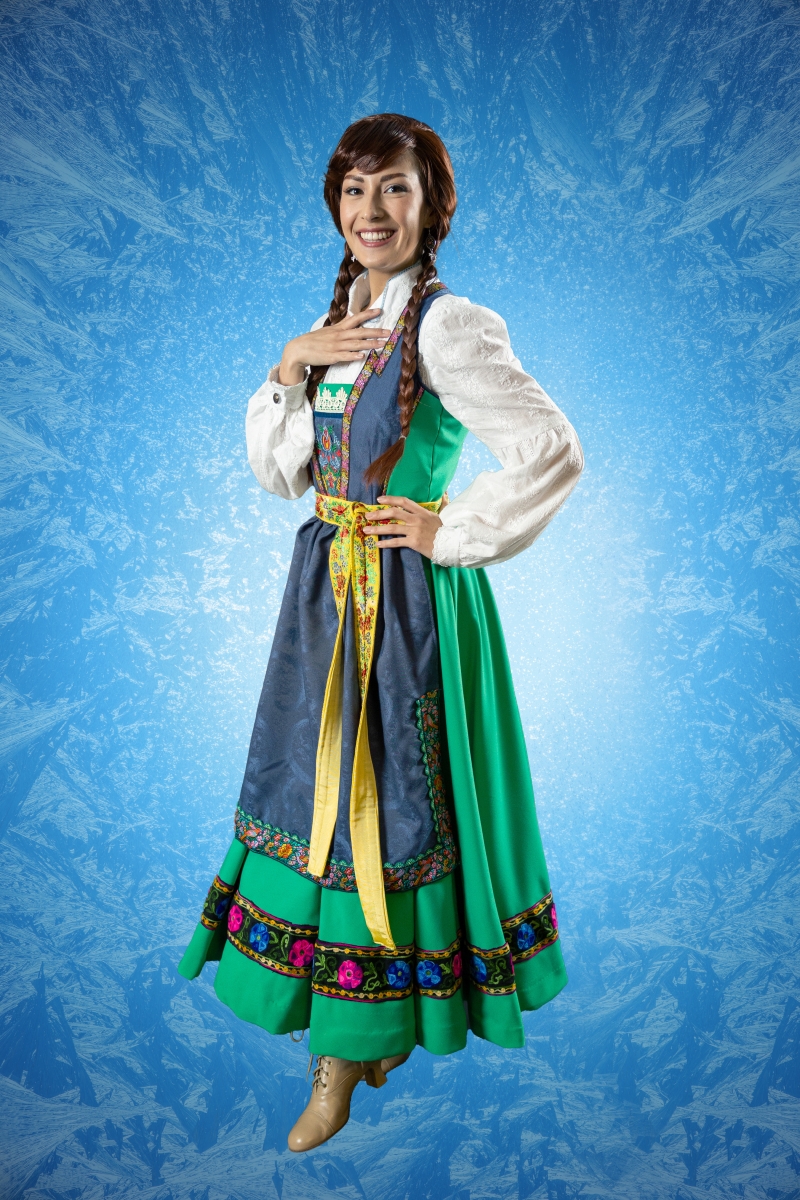
Photography by Melissa Taylor
Can you tell us about a mentor or someone who has significantly influenced your career in stage management?
I’ve been incredibly lucky to have several mentors throughout my career. Many experienced stage managers, particularly those I worked with during my internships and early production assistant roles, took me under their wing. I've been fortunate to work with many generous stage managers who have shared invaluable advice, from the nitty-gritty of paperwork to the big picture of building a career in theater. I’m grateful for the many mentors who've shaped my career, including Michelle Blair, Brian L'Ecuyer, and Cameron Holsinger. Their guidance and support have been instrumental in my growth as a stage manager.
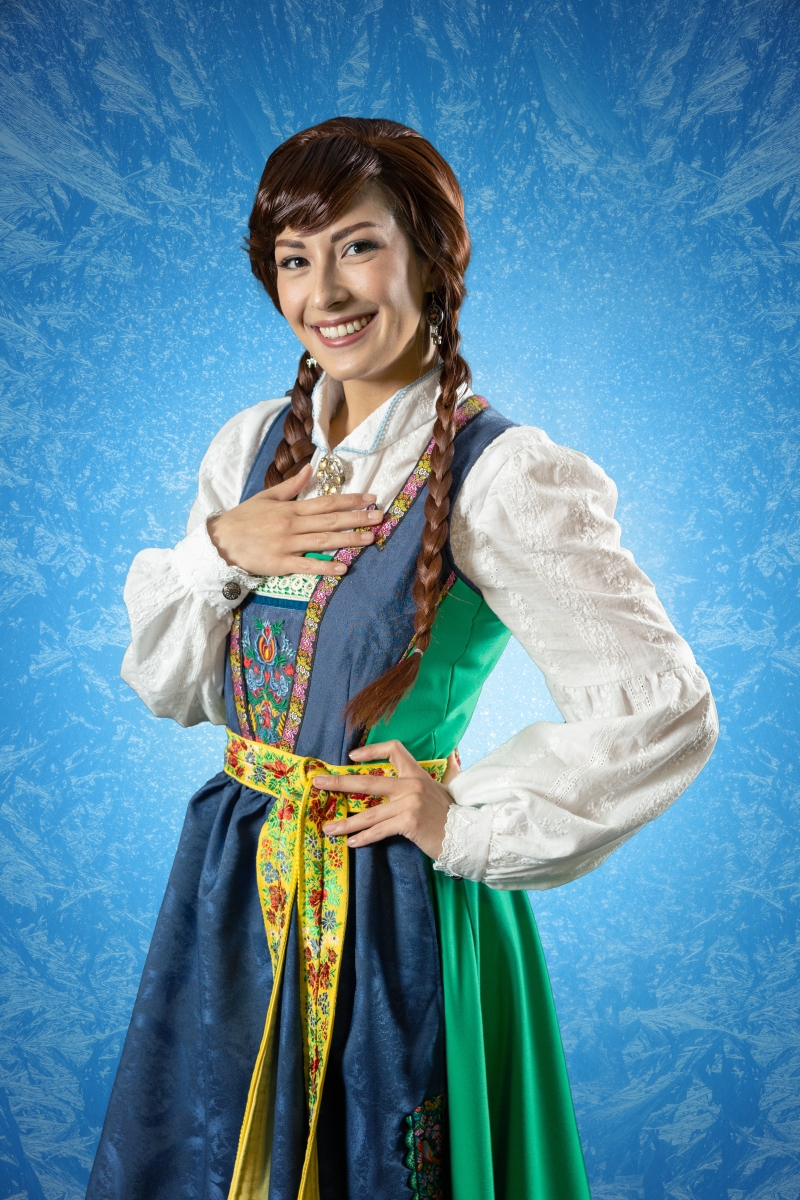
Photography by Melissa Taylor
What’s the most valuable lesson you’ve learned throughout your career so far?
Stage managing can be demanding, but I've learned valuable lessons about patience, resilience, and effective communication. While technical skills like calling a show and formatting paperwork are essential, it's the interpersonal skills that truly make a difference. By building strong relationships with my team and maintaining a positive attitude, I've been able to navigate challenges and create rewarding experiences.
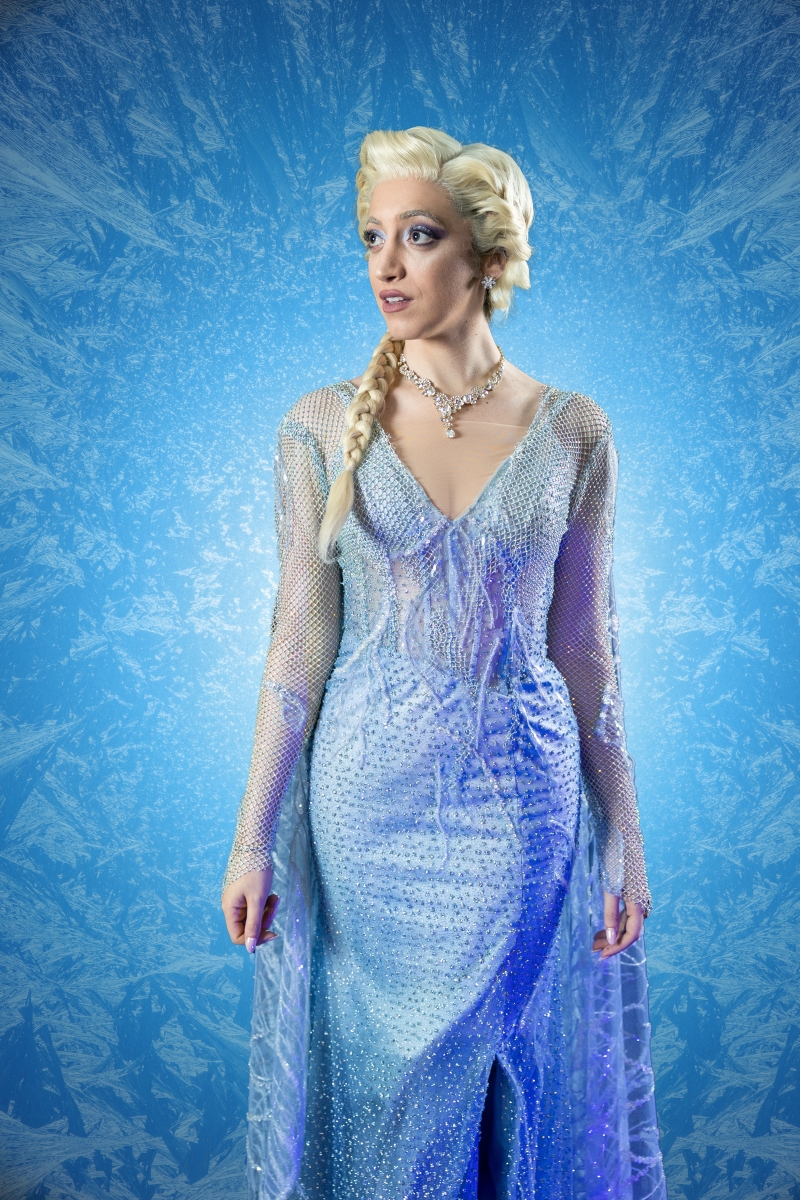
Photography by Melissa Taylor
Have there been any particular productions or projects that have had a profound impact on you?
For me, it's ultimately about the people. While I've worked on many productions, a few experiences stand out. My internship at Pittsburgh CLO in 2011 was particularly formative. The magic of that stage management team was how different we all were individually, yet we came together and worked so seamlessly and had so much fun doing it. Working alongside experienced stage managers like Brian L'Ecuyer, Alicia Reece, Karyn Meek, and Rosie DiVicenzo, I learned invaluable lessons about teamwork, adaptability, and the power of positive collaboration. The fast-paced, high-pressure environment of summer stock was challenging, but also incredibly rewarding.
Another stage management team that stands out is the one I worked with on the Chicago production of Hamilton. The team, including Cameron Holsinger, Rolando Linares, Anna Kaltenbach, and Garrett Kerr, were not only talented professionals but also wonderful friends and incredibly fun people to work with. Their dedication to excellence and their ability to maintain a positive attitude, even under pressure, has left a lasting impression on me.
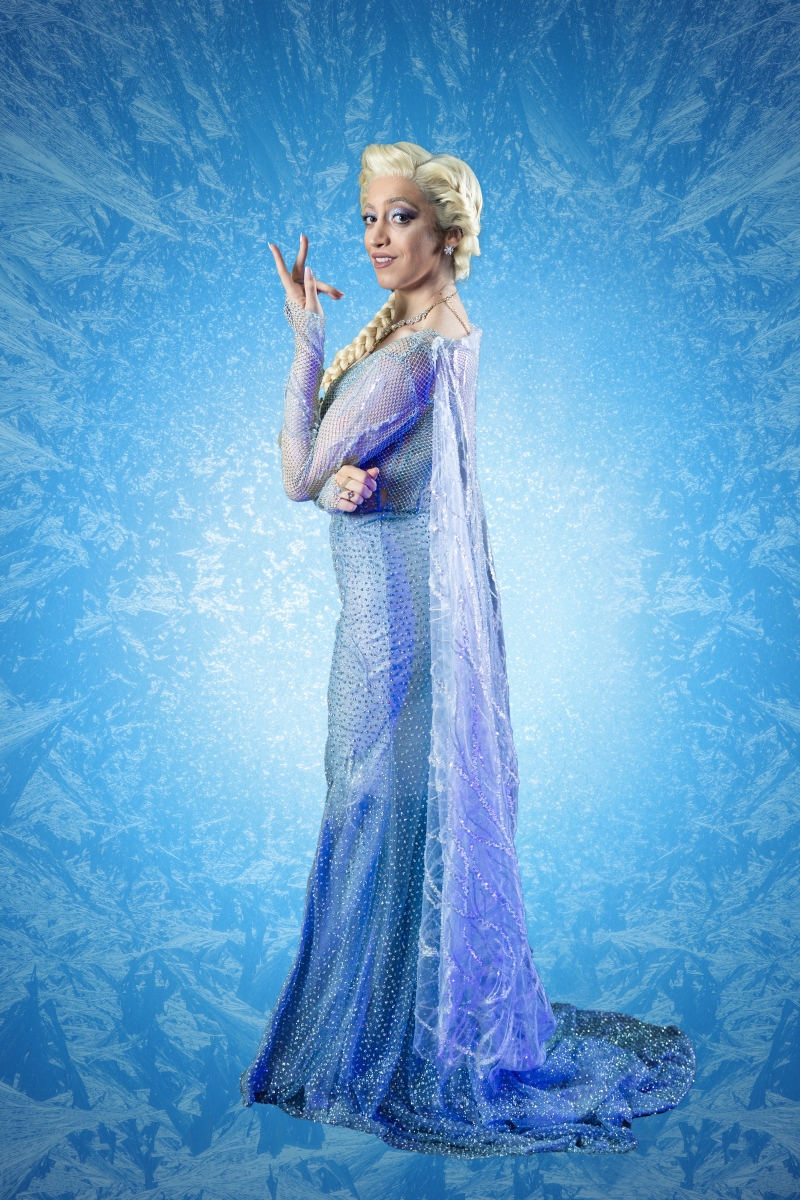
Photography by Melissa Taylor
What aspect of stage management do you find most fulfilling, and why?
I find the most fulfilling aspect of stage management to be the opportunity to bridge the gap between the creative and technical aspects of a production. As a stage manager, I’m able to work closely with both the artistic and technical teams, ensuring that everyone’s vision is realized. This collaborative process is incredibly rewarding.
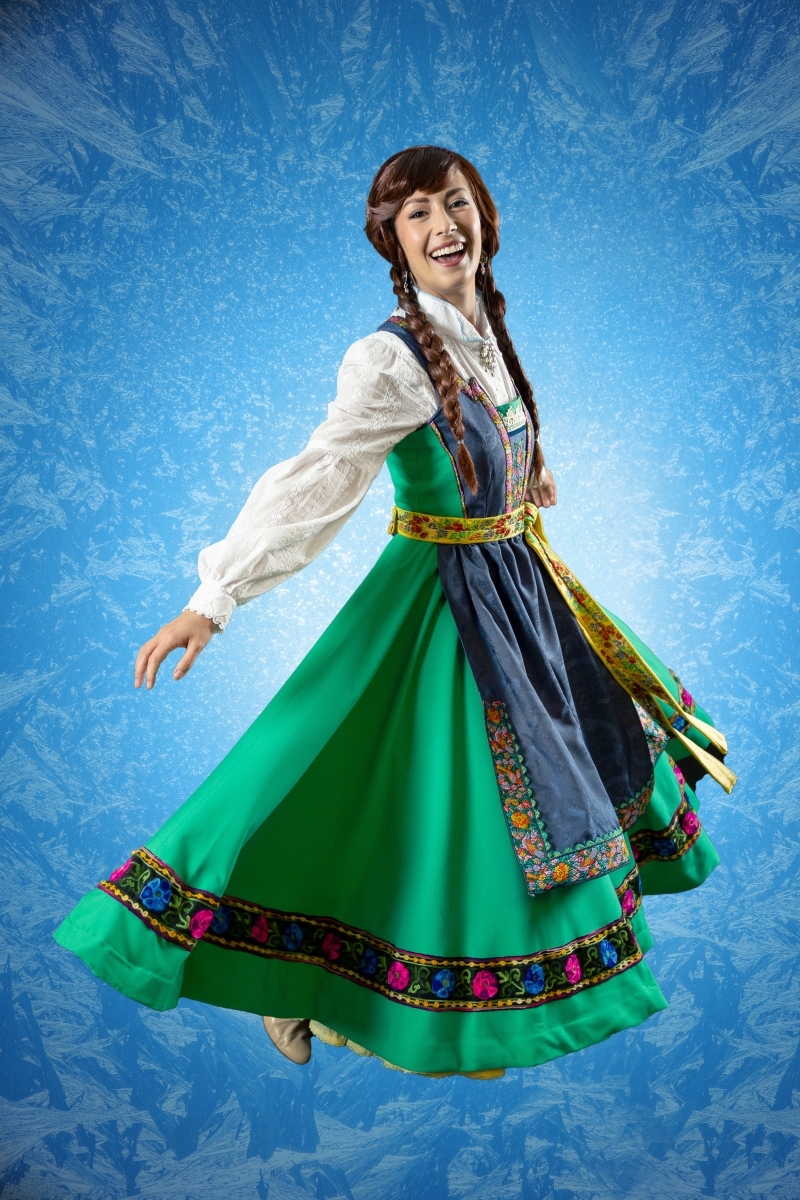
Photography by Melissa Taylor
What are some of the unique challenges or highlights of managing a production as large and visually complex as Frozen?
One of the biggest challenges of managing a production like Frozen is coordinating the numerous moving parts. With a large cast of 38, including young performers, and intricate technical elements like projections, puppets, over 300 costumes, and a live orchestra of 22, every detail must work together seamlessly. The sheer scale of the production requires meticulous planning and execution.
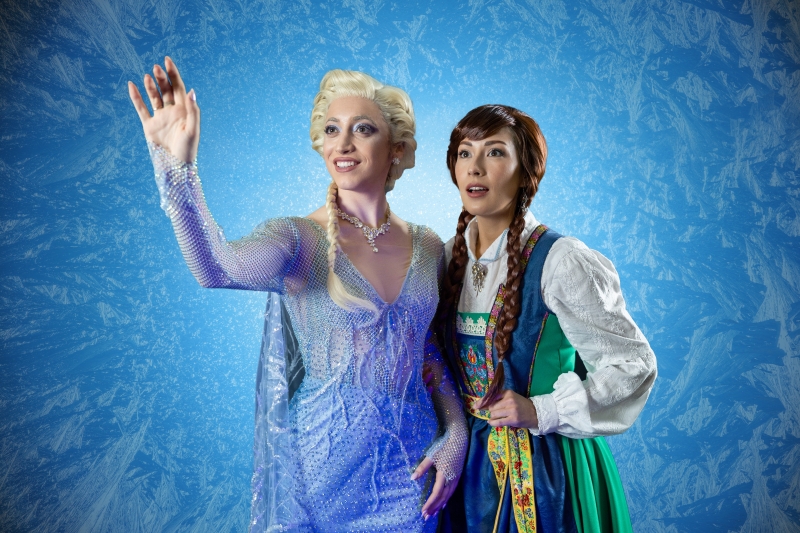
Photography by Melissa Taylor
What strategies do you use to keep track of the many moving parts and quick changes that are part of a show like Frozen?
To keep track of everything in a show like Frozen, I rely on a great team. My two amazing assistant stage managers, Trinity Nobles and Ethan Mitchell, are incredibly talented and essential to the success of the production. They help me manage all of the moving parts, ensuring that everything runs smoothly.
How do you balance the creative and logistical aspects of stage management in a high-profile production like this?

Photography by Melissa Taylor
Do you have any advice for aspiring stage managers who want to work on large-scale productions?
Once again, it's about having a strong team and support system. By working closely with my assistant stage managers, we can balance the creative and logistical aspects of a large-scale production like Frozen. We divide responsibilities, focus on both the big picture and the details, anticipate potential challenges, and adapt to unexpected changes. Ultimately, our goal is to support the director's vision and create a seamless experience for the audience.
For aspiring stage managers, I'd say focus on building strong relationships, being a good problem-solver, and paying attention to the little details. Be willing to learn from everyone, as everyone has something to teach you. Remember, there's no one right way to stage manage, so be flexible and adaptable.

Photography by Melissa Taylor
Tickets can be bought for Frozen the Musical at tuts.com, or at their box office on 800 Rosine St. at the Hobby Center for the Performing Arts. Performances run from Tuesday, December 10 thru Sunday, December 29.
Comments

Videos

